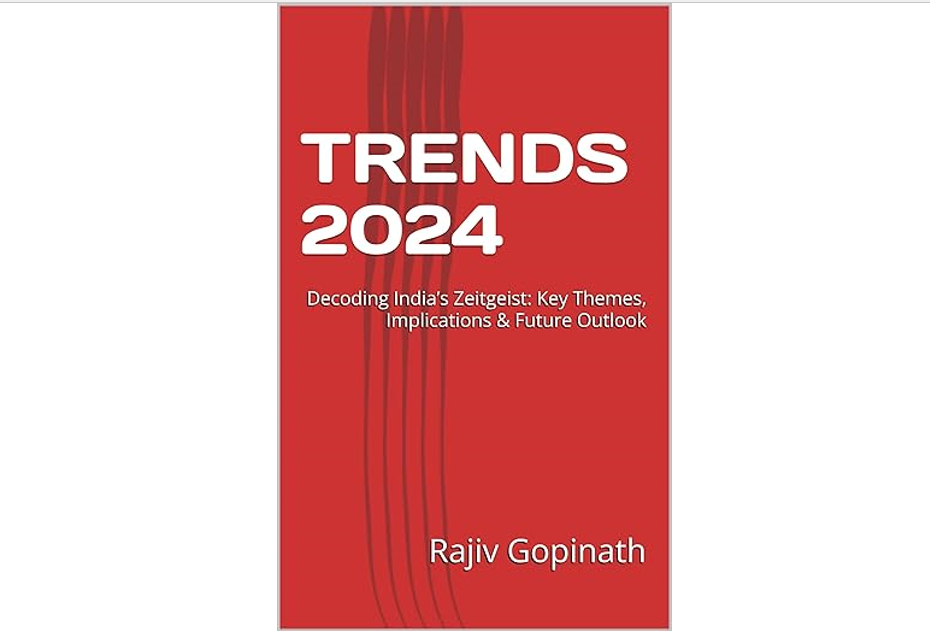Gen Z and the Next Generation of Search
While researching a paper for his graduate program last month, Thomas found himself in the university library observing a group of undergraduate students working on a project. What struck him wasn’t just what they were doing but what they weren’t doing—not one had opened Google. Instead, they were scouring TikTok for expert opinions, cross-referencing information in Discord communities, and posing questions on Reddit forums. When Thomas asked why they weren’t using traditional search engines, a sophomore replied matter-of-factly, “Google just gives you what it thinks you want—TikTok gives you what actual people know.” That offhand comment crystallized for him a fundamental shift in information-seeking behavior that’s reshaping how an entire generation discovers not just content but products, services, and brands.
Introduction
Generation Z is pioneering a search revolution that's fundamentally changing how information is discovered, evaluated, and trusted. Traditional search engines—designed around keyword matching and authority scoring—are increasingly bypassed in favor of platforms that deliver personalized, visual, and community-validated information. Research from GWI indicates that 43% of Gen Z users turn to TikTok for search purposes, with 47% using Reddit for product research and decision-making—a significant departure from Millennial and older generations who still predominantly rely on traditional search engines.
This shift represents more than changing platform preferences—it signals an evolving relationship with information discovery itself. The consulting firm McKinsey & Company reports that Gen Z displays a 76% higher preference for "discovery-based information retrieval" over "query-based search," seeking platforms that surface relevant content without requiring precise query formulation. For brands, this evolution demands a fundamental reconsideration of digital visibility strategies in a landscape where being discoverable increasingly depends on community relevance rather than SEO optimization.
1. How TikTok and Reddit are Replacing Google
Distinct platform dynamics are driving the Gen Z search migration:
Visual Information Processing Preference
Gen Z demonstrates a strong preference for visual and video-based information retrieval. Research from the Visual Teaching Alliance indicates that Gen Z processes visual information 60,000 times faster than text, helping explain why 71% report higher trust in video demonstrations than text descriptions. This explains TikTok's emergence as a search destination, with the platform reporting a 300% increase in "how to" and "review" search queries since 2021.
Trust Architecture Shift
Gen Z displays what digital ethnographers call "distributed trust"—preferring aggregate opinions from peer communities over centralized authority sources. According to Edelman's Trust Barometer, 76% of Gen Z trusts peer reviews over expert opinions, and 83% trust content from "someone like me" over brand messaging. This explains Reddit's ascendance as a search destination, with its community validation mechanisms aligning with Gen Z's collective trust model.
Algorithm-Driven Discovery
Unlike previous generations who adapted to keyword-based search logic, Gen Z prefers algorithmic discovery systems. Research from the Interactive Advertising Bureau shows that 67% of Gen Z users prefer platforms that "understand what I want to see" over those requiring specific search queries. TikTok's For You Page algorithm, which proactively surfaces relevant content without explicit searches, aligns with this preference for passive discovery over active querying.
2. Rethinking SEO for Gen Z Platforms
Traditional SEO approaches must evolve for emerging discovery platforms:
Community-Validated Visibility
On platforms like Reddit and Discord, algorithms incorporate community engagement signals rather than traditional authority metrics. Analysis from social intelligence firm Brandwatch shows that content receiving high engagement and validation within specific communities receives 437% more visibility than content with traditional authority signals but low community engagement.
Visual Search Optimization
As visual search gains prominence, technical optimization requirements change dramatically. Research from visual search platform Snapchat indicates that 92% of Gen Z users have used visual search functions, with camera-initiated searches growing 130% year-over-year. This requires brands to implement visual search optimization strategies including robust image metadata, visual product tagging, and distinctive visual signatures.
Micro-Platform Specialization
Gen Z search behavior demonstrates high context-specificity, with users selecting platforms based on query type. Research from GlobalWebIndex shows that 78% of Gen Z users maintain mental maps of which platforms are optimal for specific information categories—turning to TikTok for lifestyle searches, Reddit for product research, Discord for niche interests, and traditional search engines primarily for academic or professional information.
3. Keywords vs Conversation
The fundamental unit of search is evolving from keywords to dialogue:
Conversational Query Construction
Gen Z search behavior demonstrates significant linguistic differences from traditional keyword structure. Linguistic analysis from search intelligence platform Searchmetrics shows that Gen Z queries are 71% more likely to use natural language patterns and 54% more likely to include questions rather than keyword strings. This reflects their socialization with conversational interfaces like voice assistants and AI chatbots.
Context-Rich Search Expectations
Having grown up with increasingly personalized algorithms, Gen Z expects search systems to understand contextual implications. Research from Pew Research Center indicates that 83% of Gen Z users express frustration when search systems fail to incorporate context from previous interactions or profile data, compared to 47% of older users. This explains their preference for platforms like TikTok that incorporate user behavior into search results.
Community Dialogue as Search
For Gen Z, the boundary between conversation and search is increasingly blurred. Ethnographic research from digital anthropologist Michael Wesch reveals that 64% of Gen Z users actively participate in community discussions as a primary information-gathering method rather than passive search consumption. Platforms facilitating these dialogues—like Reddit, Discord, and increasingly TikTok comments—become de facto search engines through conversation archives.
Conclusion
The emergence of Gen Z search behavior represents more than a platform shift—it signals a fundamental evolution in how information is discovered, evaluated, and trusted. As traditional search engines optimized for keyword matching and authority metrics give way to platforms emphasizing community validation, visual processing, and algorithmic discovery, brands must fundamentally reconsider their digital visibility strategies.
For marketers, this evolution demands moving beyond traditional SEO toward what might be called "Digital Discovery Optimization"—a holistic approach that spans platforms, incorporates visual and conversational elements, and prioritizes community relevance over authority metrics. Organizations that continue to focus exclusively on traditional search visibility risk becoming functionally invisible to a generation increasingly searching elsewhere.
Call to Action
For brands seeking to maintain discoverability in the evolving search landscape:
- Conduct platform-specific search behavior analysis to understand where and how your category is being researched
- Develop visual search assets optimized for camera-initiated discovery
- Invest in community presence and engagement on platforms becoming search destinations
- Create conversational content that answers natural language queries rather than targeting keywords
- Implement cross-platform visibility measurement to track discovery across emerging search platforms
Featured Blogs

TRENDS 2024: Decoding India’s Zeitgeist: Key Themes, Implications & Future Outlook

How to better quantify attention in TV and Print in India

AI in media agencies: Transforming data into actionable insights for strategic growth

How the Attention Recession Is Changing Marketing

The New Luxury Why Consumers Now Value Scarcity Over Status

The Psychology Behind Buy Now Pay later

The Rise of Dark Social and Its Impact on Marketing Measurement

The Role of Dark Patterns in Digital Marketing and Ethical Concerns








